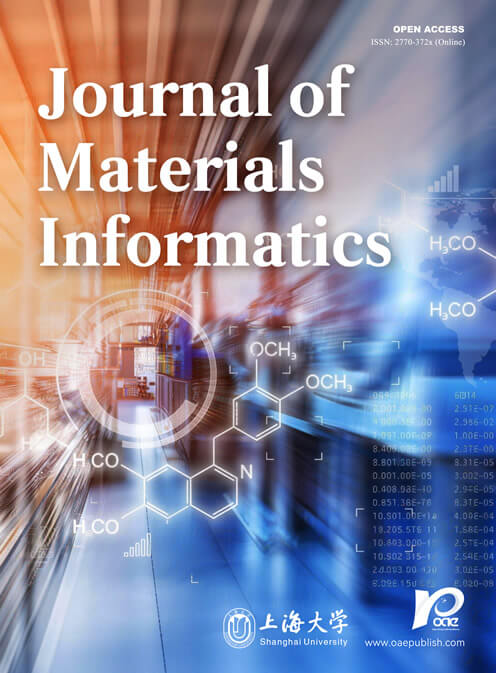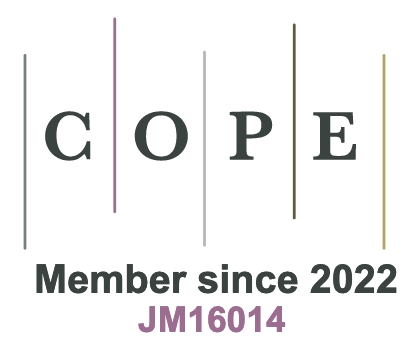REFERENCES
1. Luo, X.; Yang, H.; Zhou, J.; et al. Achieving outstanding heat-resistant Mg-Gd-Y-Zn-Mn alloy via introducing RE/Zn segregation on α-Mn nanoparticles. Scr. Mater. 2023, 236, 115672.
3. Mordike, B. L.; Ebert, T. Magnesium: properties - applications - potential. Mater. Sci. Eng. A. 2001, 302, 37-45.
4. Joost, W. J.; Krajewski, P. E. Towards magnesium alloys for high-volume automotive applications. Scr. Mater. 2017, 128, 107-12.
5. Shah, S.; Liu, M.; Khan, A.; et al. Twinning aspects and their efficient roles in wrought Mg alloys: a comprehensive review. J. Magnes. Alloys. 2024, 12, 2201-30.
6. Li, Y.; Zhang, A.; Li, C.; et al. Recent advances of high strength Mg-RE alloys: alloy development, forming and application. J. Mater. Res. Technol. 2023, 26, 2919-40.
7. Jiang, B.; Dong, Z.; Zhang, A.; Song, J.; Pan, F. Recent advances in micro-alloyed wrought magnesium alloys: theory and design. Trans. Nonferrous. Met. Soc. China. 2022, 32, 1741-80.
8. Calado, L. M.; Carmezim, M. J.; Montemor, M. F. Corrigendum: Rare earth based magnesium alloys - a review on WE series. Front. Mater. 2022, 9, 858921.
9. Wang, H.; Luo, X.; Zhang, D.; Qiu, C.; Chen, D. High-strength extruded magnesium alloys: a critical review. J. Mater. Sci. Technol. 2024, 199, 27-52.
10. Ning, J.; Gao, B.; Yuan, X.; Zhou, J.; Tang, G.; Chen, L. Strength and ductility improvement in a heterostructured Mg-Gd-Y alloy with inversely-gradient hardness distribution. Jf. Mater. Res. Technol. 2024, 28, 3781-93.
11. Li, Y.; Yang, C.; Zeng, X.; Jin, P.; Qiu, D.; Ding, W. Microstructure evolution and mechanical properties of magnesium alloys containing long period stacking ordered phase. Mater. Charact. 2018, 141, 286-95.
12. Zhou, J.; Luo, X.; Yang, H.; et al. Introducing lamellar LPSO phase to regulate room and high-temperature mechanical properties of Mg-Gd-Y-Zn-Zr alloys by altering cooling rate. J. Mater. Res. Technol. 2023, 24, 7258-69.
13. Chen, J.; Ji, C.; Huang, Q.; et al. Formation mechanism of W phase and its effects on the mechanical properties of Mg−Dy−Zn alloys. J. Magnes. Alloys. 2025, 13, 2174-89.
14. Wu, G.; Tong, X.; Wang, C.; Jiang, R.; Ding, W. Recent advances on grain refinement of magnesium rare-earth alloys during the whole casting processes: a review. J. Magnes. Alloys. 2023, 11, 3463-83.
15. Xue, K.; Luo, Z.; Xia, S.; Dong, J.; Li, P. Study of microstructural evolution, mechanical properties and plastic deformation behavior of Mg-Gd-Y-Zn-Zr alloy prepared by high-pressure torsion. Mater. Sci. Eng. A. 2024, 891, 145953.
16. Jiang, Y.; Le, Q.; Zhu, Y.; et al. Review on forming process of magnesium alloy characteristic forgings. J. Alloys. Compd. 2024, 970, 172666.
17. Wei, J.; Chu, X.; Sun, X.; et al. Machine learning in materials science. InfoMat 2019, 1, 338-58.
18. Zhang, C. C.; Zhang, K.; Ni, R.; Liu, H.; Shen, J. Unleashing the potential of machine learning: an exploration of state-of-the-art algorithms and real-world applications in computer vision. In 2023 Congress in Computer Science, Computer Engineering, & Applied Computing (CSCE), Las Vegas, USA. July 24-27, 2023. IEEE; 2023. pp. 422-5.
19. Kate, C.; Kalpana, C.; Sharma, A.; Yadav, A. S.; Kumar, A.; Kumar, S. S. Investigation of machine learning algorithms for pattern recognition in image processing. In 2023 5th International Conference on Inventive Research in Computing Applications (ICIRCA) Coimbatore, India. August 03-05, 2023. IEEE; 2023. pp. 898-904.
20. Sharma, H.; Jindal, H.; Devi, B. Advancements in natural language processing: techniques and applications. In 2023 International Conference on Advanced Computing & Communication Technologies (ICACCTech), Banur, India. December 23-24, 2023. IEEE; 2023. pp. 61-5.
21. Rahnama, A.; Zepon, G.; Sridhar, S. Machine learning based prediction of metal hydrides for hydrogen storage, part I: prediction of hydrogen weight percent. Int. J. Hydrogen. Energy. 2019, 44, 7337-44.
22. Liu, H.; Cheng, J.; Dong, H.; et al. Screening stable and metastable ABO3 perovskites using machine learning and the materials project. Comput. Mater. Sci. 2020, 177, 109614.
23. Ghorbani, M.; Boley, M.; Nakashima, P.; Birbilis, N. A machine learning approach for accelerated design of magnesium alloys. Part A: alloy data and property space. J. Magnes. Alloys. 2023, 11, 3620-33.
24. Fu, Z.; Liu, W.; Huang, C.; Mei, T. A review of performance prediction based on machine learning in materials science. Nanomaterials 2022, 12, 2957.
25. Lee, K.; Song, Y.; Kim, S.; et al. Genetic design of new aluminum alloys to overcome strength-ductility trade-off dilemma. J. Alloys. Compd. 2023, 947, 169546.
26. Li, J.; Zhang, Y.; Cao, X.; et al. Accelerated discovery of high-strength aluminum alloys by machine learning. Commun. Mater. 2020, 1, 74.
27. Xue, D.; Balachandran, P. V.; Hogden, J.; Theiler, J.; Xue, D.; Lookman, T. Accelerated search for materials with targeted properties by adaptive design. Nat. Commun. 2016, 7, 11241.
28. Qian, C.; Tan, R. K.; Ye, W. Design of architectured composite materials with an efficient, adaptive artificial neural network-based generative design method. Acta. Mater. 2022, 225, 117548.
29. Debnath, A.; Krajewski, A. M.; Sun, H.; et al. Generative deep learning as a tool for inverse design of high entropy refractory alloys. J. Mater. Inf. 2021, 1, 3.
30. Tian, Y.; Li, T.; Pang, J.; et al. Materials design with target-oriented Bayesian optimization. npj. Comput. Mater. 2025, 11, 1704.
31. Qin, Z.; Zhao, H.; Zhang, S.; et al. Design of high performance Cu-Ni-Si alloys via a multiobjective strategy based on machine learning. Mater. Today. Commun. 2024, 39, 108833.
32. Padhy, S. P.; Chaudhary, V.; Lim, Y. F.; et al. Experimentally validated inverse design of multi-property Fe-Co-Ni alloys. iScience 2024, 27, 109723.
33. Ghorbani, M.; Boley, M.; Nakashima, P. N. H.; Birbilis, N. An active machine learning approach for optimal design of magnesium alloys using Bayesian optimisation. Sci. Rep. 2024, 14, 8299.
34. Mazaheri, A.; Kamkar, S. Webpage saliency prediction using a single layer support vector regressor. In 2024 10th International Conference on Artificial Intelligence and Robotics (QICAR). 2024. pp. 80-3.
35. Mi, X.; Tian, L.; Tang, A.; et al. A reverse design model for high-performance and low-cost magnesium alloys by machine learning. Comput. Mater. Sci. 2022, 201, 110881.
36. Uhrig, R. E. Introduction to artificial neural networks. In Proceedings of IECON ’95 - 21st Annual Conference on IEEE Industrial Electronics, Orlando, USA. November 06-10, 1995. IEEE; 1995. pp. 33-7.
37. Choi, R. Y.; Coyner, A. S.; Kalpathy-Cramer, J.; Chiang, M. F.; Campbell, J. P. Introduction to machine learning, neural networks, and deep learning. Transl. Vis. Sci. Technol. 2020, 9, 14.
38. Li, Z.; Li, S.; Birbilis, N. A machine learning-driven framework for the property prediction and generative design of multiple principal element alloys. Mater. Today. Commun. 2024, 38, 107940.
39. Liu, B.; Mazumder, R. Randomization can reduce both bias and variance: a case study in random forests. arXiv 2024, arXiv:2402.12668. Available online: https://doi.org/10.48550/arXiv.2402.12668. (accessed 10 Nov 2025).
40. Chen, T.; Guestrin, C. XGBoost: a scalable tree boosting system. In Proceedings of the 22nd ACM SIGKDD International Conference on Knowledge Discovery and Data Mining, 2016. Association for Computing Machinery; 2016. pp. 785-94.
41. Deb, K.; Pratap, A.; Agarwal, S.; Meyarivan, T. A fast and elitist multiobjective genetic algorithm: NSGA-II. IEEE. Trans. Evol. Computat. 2002, 6, 182-97.
42. Verma, S.; Pant, M.; Snasel, V. A comprehensive review on NSGA-II for multi-objective combinatorial optimization problems. IEEE. Access. 2021, 9, 57757-91.
43. Srinivas, N.; Deb, K. Muiltiobjective optimization using nondominated sorting in genetic algorithms. Evol. Comput. 1994, 2, 221-48.
44. Marler, R. T.; Arora, J. S. Survey of multi-objective optimization methods for engineering. Struct. Multidisc. Optim. 2004, 26, 369-95.








